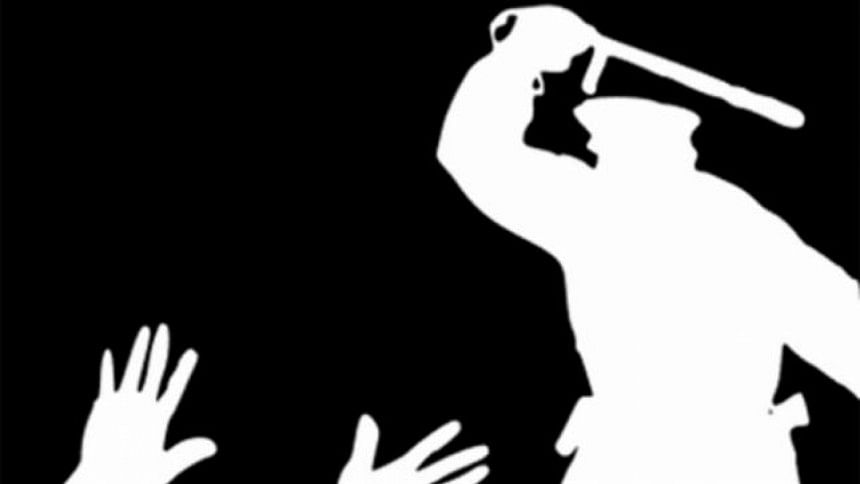Forestalling extrajudicial killings

A report in this newspaper on January 11 tends to give the impression that the non-disposal of three rules by the honourable High Court questioning the legality of extrajudicial killings have stood in the way of protecting the people in custody. The said report comments: "Had the HC delivered a judgment on the rules there might have been directives for the authorities to ensure protection of the accused in law enforcers custody, some legal experts say."
By reading the above report, the not-so-informed members of the public may be led to believe that directives from the court is the principal if not the only deterrent to hold the errant law enforcers in check.
While the court's statutory mandate to supervise law enforcers' functions is welcome, the inertia of law enforcement executives and their supervisors in this connection is often lost sight of. This is so because the origin of the scourge of extrajudicial killings is primarily rooted in the indiscipline of the law enforcement officials. So the real solution lies in preventing the malaise by advance action.
The incentive for actions such as extra-judicial killings comes from the fact that our judicial system is slow, cumbersome and full of scope for misuse and as such fails to bring quick relief to people seeking justice.
The dilemma is that while those wishing to see the effective writ of the rule of law refuse to accept extra-judicial deaths as an acceptable response, there is no dearth of supporters of such apparently abominable method. Random eliciting of opinions by newspapers has shown that a large majority of people believe that the slide in crimes can gradually be stalled by resorting to extra-judicial killings.
It is time, therefore, to do some serious introspection. If extra-judicial killings succeed in even implicitly acquiring the seal of approval then there remains no justification for maintaining a justice system at public expense. The question is how low shall we stoop and offend the democratic sensibilities?
It appears that as a society we are finding it difficult to get out of the extra-judicial mode that has set in since quite some time. While there is realization that extra-judicial deaths are a slap on the rule of law and are condemnable yet the efforts to put things on the right track have been distressingly slow. It is, therefore, once again necessary to go into the causes of the aberration and deliberate on the remedial measures.
Corrective actions to deter patently illegal acts like deaths in custody or extra-judicial killings have come late. The belated actions, caused principally by the outcry in the media and vehement protests of the civil society, should prompt us to question what contributed to the building of a lamentable extra-judicial mindset.
Why do lawmen resort to short-cut and extra-legal methods in their statutory functions? Is it ambiguous legislation, vulnerability to legal sanctions, occupational culture and pressure to produce quick results? Does the malfunctioning of the criminal justice system push people to expect, nay demand, of the police to take laws in their own hands, especially when dealing with the dreaded terrorists and hard-core criminals?
It is not uncommon to hear demands for ruthless counter measures irrespective of the price that has to be paid in terms of human rights. Thus, abuses of authority in such situations can flourish not only due to official negligence or acquiescence but because, rightly or wrongly, broad sections of people consider that in spite of their excesses the police are carrying out an important and unpleasant task for the preservation of society and State.
There are also occasions when situations of grave emergency demand that "order" override "liberty". Some say that the safety of the people is the highest law and, as such, in grave situations, special emergency measures have to be adopted curtailing rights of the people. The issue is whether our political leaders realize that even in times of emergency there are certain non-derogable rights to life and liberty, freedom from torture, etc.
Experience shows that a lawful police officer succeeds in displaying substantial results in the long-run but most people are interested in short-term, spectacular results even though they may be illusory. In fact, our expectations, compatible with the rule of law, of the police are at total variance with our actual expectations compatible with the rule of order. This double standard makes one believe that police's chief value lies in efficient enforcement of the prohibitive norms of substantive criminal law.
The urgent need for police modernisation becomes relevant when we witness our lawmen indulging in third degree methods. Such methods would seldom, if ever, have been used by our traditional police force. Like the defense services, our police should also be equipped with modern equipment and staffed with well-trained people. How long shall we put up with an outfit that appears largely unaffected by the developments in science and technology in the law enforcement field?
It needs to be impressed once again that the practice of breaking the law in the name of law enforcement is totally unacceptable and intolerable and has no place in a society governed by the rule of law. It is objectionable because it is arbitrary as a process and random in its effects. A democratic polity venturing to maintain order by repression and criminality is actually creating ultimate disorder because in so doing it creates a link between social order and atrocities.
We have to remember that law enforcement is a field of activity in which interaction between the world of the powerful and the world of the powerless are manifested. Hence, it has to be ensured that law enforcement emphasizes principles of purpose and principles of values. We must come out of the degrading thought that those who cannot be taken care of within the ambit of law have to be dealt beyond the law.
The writer is a former IGP and a columnist of The Daily Star.

 For all latest news, follow The Daily Star's Google News channel.
For all latest news, follow The Daily Star's Google News channel. 








Comments